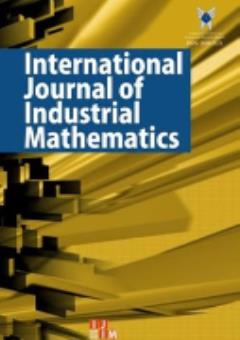Designing an intelligent irrigation system with fuzzy logic to improve the agriculture industry in Iran
محورهای موضوعی : مجله بین المللی ریاضیات صنعتی
SEYYEDEH MASOUMEH HOSSEINI ABBAS ABADI
1
![]() ,
parastow hatamy
2
,
parastow hatamy
2
1 - master Ghiasuddin Jamshid Kashani
2 - Faculty member and professor of Ghiasuddin Jamshid Kashani University of Qazvin, Iran
کلید واژه: Smart agriculture, Smart irrigation, IoT, Fuzzy logic, Dry / wet Sensor, Temperature sensor.,
چکیده مقاله :
Agriculture has always been one of the most important and basic human needs. Population increase, dietary changes, resource constraints and climate change are all problems that force farmers to produce more using fewer resources. According to the research undertaken in this area, the rate of water loss in Iran's agricultural industry is 28 to 30 percent, while this amount is equal to 9 to 12 percent in the world. Hence, this study focused on designing an intelligent irrigation system to improve the irrigation system in the agricultural industry of Iran, as well as examining the challenges of farmers in the field of water scarcity, costs related to intelligent irrigation systems and land flooding. For this purpose, fuzzy logic based on SPSS software was used to perform normalization operations and linear regression to determine the correlation coefficient as well as the coefficient of determination between the two characteristics of soil moisture and soil temperature and the relationship between the two with air temperature. In addition, MATLAB software has been used to design the intelligent irrigation system module. As a result, the removal of the soil temperature sensor identified as one of the useful ways to reduce the challenges of farmers, which not only can eliminate the possibility of disconnection between the soil temperature sensor and the network, but also can decrease the costs associated with the purchase and Maintenance. The use of meteorological information in addition to the information of soil moisture and air temperature sensors in the design of module inputs can prevent flooding and damage to agricultural products and conserves water significantly. The results of this study can help farmers to overcome the related challenges due to use intelligent irrigation systems.
کشاورزی از گذشته تا به حال یکی از مهمترین و اساسیترین نیاز بشر بوده است. ازدیاد جمعیت ،تغییر رژیم های غذایی، محدودیت منابع و تغییرات اقلیمی همگی از مشکلاتی هستند که کشاورزان را مجبور به تولید بیشتر با مصرف کمتر منابع می-کند. براساس تحقیقات و آمار ارایه شده در ایران، میزان هدر رفت آب در کشاورزی ۲۸ تا ۳۰ درصد بوده که این مقدار در دنیا ۹ تا ۱۲ درصد میباشد. در این مقاله بر روی طراحی یک سیستم آبیاری هوشمند با منطق فازی برای ارتقاء صنعت آبیاری در ایران و همچنین بررسی چالشهای کشاورزان در زمینهی کمآبی، هزینههای مربوط به سیستمهای آبیاری هوشمند و غرقاب شدن زمین تمرکز شده است. از نرمافزار SPSS، برای انجام عملیات نرمال سازی و گرفتن رگرسیون خطی برای مشخص کردن ضریب همبستگی و ضریب تعیین بین دو ویژگی رطوبت خاک و دمای خاک با هم و ارتباط این دو با دمای هوا، استفاده شد. علاوه بر این، جهت طراحی ماژول سیستم آبیاری هوشمند، از نرم افزار MATLAB استفاده شد. نتایج به دست آمده نشان داد که یکی از راهکارهای مفید در کاهش چالش کشاورزان، حذف سنسور دمای خاک است که نه تنها سبب صرفه جویی در هزینههای خرید، نگهداری شده و احتمال قطعی سنسور دمای خاک با شبکه را از بین می برد، بلکه منجر به افزایش قابلیت اطمینان و اعتماد در بین کشاورزان نیز میشود. هم چنین استفاده از اطلاعات هواشناسی علاوه بر اطلاعات سنسور رطوبت خاک و دمای هوا در طراحی ورودی های ماژول می تواند از غرقاب شدن زمین و خسارات وارده به محصولات کشاورزی جلوگیری کرده وهمچنین در مصرف آب صرفه جویی کند.


